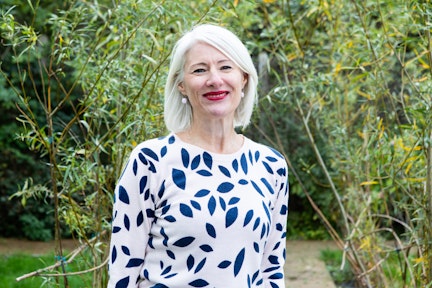Winterbourne View 10 years on – a provider perspective
With the 10-year anniversary of Panorama’s Winterbourne View programme on 31 May, there is much on social media about what exactly has changed. People are sharing their own personal experiences on what has and hasn’t changed since this shocking physical and psychological abuse was revealed. You can read and watch some of these personal experiences at the Rightful Lives site, or under the #Winterbourne10YearsOn hashtag on Twitter.
A support provider’s view
Progress has been slow. Painfully slow. 10 years on, 2,040 people with learning disabilities or autism are being held in assessment and treatment units. 355 people have been inpatients for over 10 years. Margaret Flynn and Vic Citarella in their Guardian article rightly state that “homes are needed, not beds.”
From a provider perspective we have been listening to people and their families, learning from them and working to better support Londoners who have experienced or are at risk of hospital admissions.
Our learning
Our learning about what works and what doesn’t continues to shape and direct the support we provide because what we do know for sure, is that living your life in a hospital doesn’t work for anyone. When support is being designed, commissioned and funded for people moving out of hospital or at risk of being admitted, the support for their family continues to be largely forgotten or ignored. Families have been as traumatised by the experience and have their own support needs. They too need to come to terms with what has happened, to learn how to trust again and to re-establish relationships.
This can be a learning curve for support providers. We commonly hear that providers are paid to support the individual, not their family. We think this is wrong and strongly believe this is a false economy in any case. Great support to a person means involving, supporting and working alongside their family as well. And sometimes you won’t agree with each other, sometimes you won’t meet the standards expected.
“Only by continuing to work together can you achieve the right support.”
Trauma informed support needs to inform the way provider organisations work – for the person and for their family. There is no quick recovery from living an enforced and hugely restricted life. Feeling safe, feeling able to trust and feeling able to take control takes time.
Providing the right support
Providing the right support is the responsibility of the whole organisation not just the support team. Getting it right impacts and can challenge every part of an organisation – for example, the HR department need to think creatively and differently about recruitment, about job descriptions and patterns of work. The learning and development department need to ensure teams can access the training and development designed specifically around the person they are supporting.
For many people, it is important that they are able to live on their own, to have their own home. We have, however, also experienced a condition of discharge being immediate access to additional staff if needed. This creates a challenge for support providers in sourcing the right property whilst ensuring a robust enough local infrastructure. Without creativity, such conditions can result in the simplest solution – the development of accommodation and support that simply mirrors hospital life albeit on a smaller scale.
Where there are professional anxieties about discharging someone, there can be the assumption that registered care can be safer and more secure. In our experience, the starting place should be supported living principles and practice. For someone to have their own home, their own tenancy by law gives that person more rights and places them in a stronger position.
Building the right support places a lot of emphasis on multi-disciplinary working and rightly so. Getting it right for someone is a team effort. Things can go quickly wrong when the person and their support provider are left on their own.
Positive behaviour support
Many providers now have positive behaviour support teams to provide ongoing additional support which can be great. Our learning however is that people’s needs understandably change over time and ongoing psychological support – including occupational therapists who specialise in sensory support, speech and language therapy – is essential. The hope for people who have experienced an assessment and treatment unit is that they are able to re-establish what is important to them in how they live their life and have the right support to be able to do so. This means ongoing input into how to best do this at different points.

Housing continues to be a challenge – especially in London. The right accommodation takes joint working and forward planning from local authorities, providers, NHS England and more strategically at a pan-London level.
The demand for highly skilled, specialist support is increasing. Young people with a range of support needs who are at the start of their adult lives – and who deserve and are entitled to the right support to live good lives within their local communities – need homes not hospitals.
We know we don’t always get things right and we are always learning. But we love and appreciate being able to support people and their families, to work alongside them, to learn together and ultimately to ensure they can live their lives, their way. At home, not in hospital.
Aisling Duffy, Certitude Chief Executive